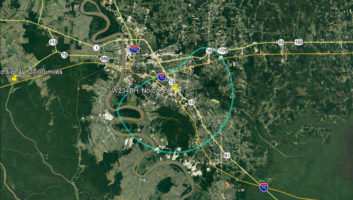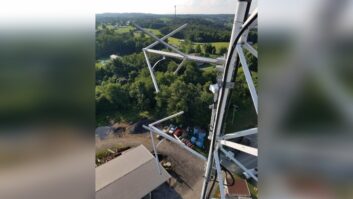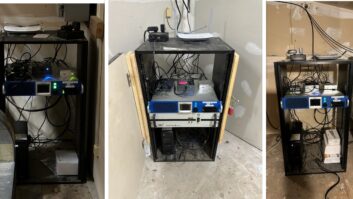
The renewal of a Baton Rouge, La., translator is pitting one FM station against one another over issues of interference and whether or not the translator is operating within the parameters of its license.
In July 2020, the licensee Radio & Investments Inc. (R&I) — licensee of station KDDK(FM) in Addis, La. — submitted an instant Petition to Deny over the application renewal status of an FM translator. R&I said that FM translator W234DH, licensed to Crocodile Broadcasting Corp. (and bundled in with the renewal application of Crocodile station KGLA(AM) in Norco, La.), should be flagged by the FCC for several irregularities — including the claim that Crocodile had not yet finalized construction of the FM translator’s facilities when it specified and that the installed antenna was not directional as was authorized under its license.
[Read: Battle Lines Are Drawn in Translator Interference Rules Order]
Subsequent research also suggested that the W234DH translator is operating as much as 40 times over its minima, a source said.
An engineering statement submitted with the petition said that the facility is not operating consistent with its license. According to R&I, a 16.1 dB difference between the authorized output power and the observed output power indicates that W234DH’s signal strength in Baton Rouge is many times more than it should be.
“It is clear that there is a consistent pattern demonstrated by Crocodile to ignore the commission’s rules,” R&I said in its filing.
In its filing, R&I pointed to the commission’s reliance on character as a key element of licensing. “In light of the licensee’s execution of the renewal application, which did not reveal that the constructed facility was once again at variable with its license, Crocodile would be hard pressed to make the argument that it did not have intent,” R&I said.
Crocodile responded by rejecting the bulk of R&I’s petition, saying that R&I’s petition was defective and without merit for several reasons. Crocodile said that the filing was untimely because it had been filed more than two months after the filing deadline. The licensee also said that R&I’s claims that W234DH is operating at power in excess than authorized is false. R&I is relying on faulty field strength measurements, Crocodile said in its filing.
Crocodile also defended its character by saying that R&I failed to provide any factual evidence that Crocodile was attempting to deceive the commission.
An attorney representing Crocodile told Radio World that they did not wish to comment on the proceedings beyond what has been filed with the commission.
In May 2019, the FCC released new guidelines for resolving FM translator interference complaint issues such as these, though some stakeholders have expressed concern about the ways in which the commission determines interference.












